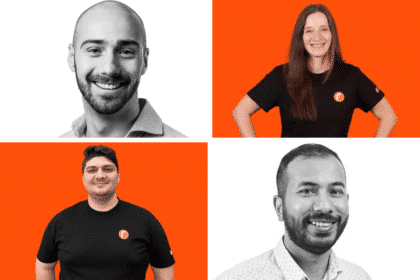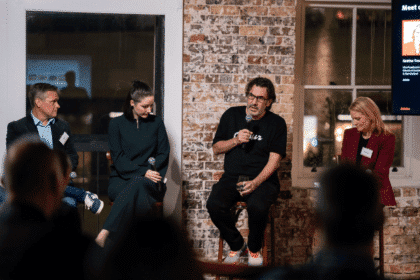This year for International Women’s Day, the extraordinary talent and smarts of the women (and some men) across the Hit Network, the Triple M Network and LiSTNR have lent their voices to a bespoke podcast, International Women’s Day 2023: #EmbraceEquity, to share their stories and experiences of what the day means to them.
The podcast features Carrie Bickmore, Jess Rowe, Fifi Box, Turia Pitt, Erin Molan, Natarsha Belling, Loren Barry, Jamila Rizvi, Steph Claire Smith & Laura Henshaw, Sarah Maree Cameron, Lama Zakharia, and Kymba Cahill along with Tommy Little, Brendan Fevola and Nick Cody. These voices, which are behind some of Australia’s favourite radio shows and podcasts, discuss a time that they have embraced equality; when it worked, when it didn’t, and what they learned from the experience.
Jess Rowe, The Jess Rowe Big Talk Show: “It is so important to call out discrimination when you see it, but also more importantly, to do it when you have the power. I knew as a younger journalist, I didn’t have the power, I didn’t have the voice to do that. But I had got to a point in my job in my career where I knew I had the experience, and I had the voice to use it. So, when you have that voice use it. And when you see other younger women around you use your voice for them if they haven’t been able to find it yet.”
Sarah Maree Cameron, Triple M Melbourne: “A guy called up to try and be part of a competition and it wasn’t the right time. So, I was like well is there anything else that I can help you with? And he said, yeah, you can make me a sandwich and laughed and thought that it was hilarious. And I was like, okay, I don’t know how many people you say that to, but I’m not really taking it. He made a comment about going back to the kitchen and then I just said to him that he can go back to 1982 and I hung up on him!”
Fifi Box, The Fox Melbourne: “There was a time, sort of in my thirties where I went, oh, I’m obviously reaching a juncture here, where if I don’t have children soon, I’m not having children. And that is just a reality that most women face, it’s a biological clock. And I think what I’m so grateful for that. I certainly know my grandmothers wouldn’t have been able to go down the path I’ve gone down. That women can actually take control of their fate and their destiny.”
Turia Pitt, Turia Pitt is Hard Work: “I once did this interview with this journalist. I’m not going to tell you his name, but he was, he was honestly a bit of a dick. He asked me what it was like to have people stare at me, how I could possibly come to terms with my changed appearance, how my partner could find me attractive and then he questioned me as to why I had been on the front cover of so many of my books. He justified this line of interrogation by saying, well, I’ve written three books and I’ve never been on the cover of any of them. And I said, well mate, no one knows who the <BLEEP> you are, so obviously putting you on the cover would not be a selling point!”
Natarsha Belling, Triple M Sydney: “I grew up in a house full of incredibly tough, outspoken women, and I have a beautiful dad and I never, ever thought I couldn’t achieve anything because I’m a female. It’s only when I encountered certain discrimination that then I thought, my gosh, why would it make any difference if I’m a female or not?”
Jamila Rizvi, The Briefing: “We always need to be looking for ways to identify the person, the group, the intersection who is not being included and demand change. Because if you have that sense of inclusion, if you have that sense of possibility and joy and fun and being supported in that room, that means you’ve got some kind of power.”
Steph Claire Smith & Laura Henshaw, KICPOD: “When people in our team take leave, we have a policy within our parental policy, where if the primary caretakers leave, they get their super paid for up to one year. And for us I think in running KIC, it’s something challenging gender stereotypes as two female founders who are running a tech business is something that we have got to do every single day. I mean, as we record this, you’re more likely to become the CEO of an a top ASX listed company if your name is Andrew, than it is Laura or any other, or Steph or any other female name.”
Erin Molan, 2DAY FM Sydney: “I have a four-and-a-half-year-old daughter and I hope by example, in a lot of ways, but also by talking to her, by having conversations, by looking at other incredible women that I admire, that I can raise her in a world and in a society where she never ever feels anything less because of her gender. Where she never feels that she can’t do something because she is a girl. That she never feels that she might be less than someone else because they’re a man.”
Loren Barry, Triple M Melbourne: “It’s so important to show the women listening to us that even if there is a lot of men around you and it’s all beer and footy and sport and all that kind of thing, you can still be a woman making change within a network like that. I have had even people say to me, you know my daughter wants to work in radio because of you, my teenage daughter, and I just think that’s so nice to hear because we don’t think of those people when we make shows like this. But they can still appeal to those groups.”
Kymba Cahill, Mix 94.5 Perth: [Reflecting on interview then Prime Minister Scott Morrison] “I wasn’t trying to set him up. It was that he appeared to be giving all of this information and I just didn’t trust what was actually happening. And funnily enough, I found afterwards the articles that went viral around the world and around Australia were people saying ‘Sco Mo scolded’, ‘Prime Minister accused of missing the mark in radio grilling’, ‘Sco Mo is grilled in tense radio interview’, ‘Kymba hammers Scott Morrison’, and I found it fascinating that everybody was calling out saying this is the journalist we’ve always needed. And I’m not a journalist. I’ve never been that person, but this was just something that really mattered to me.”








